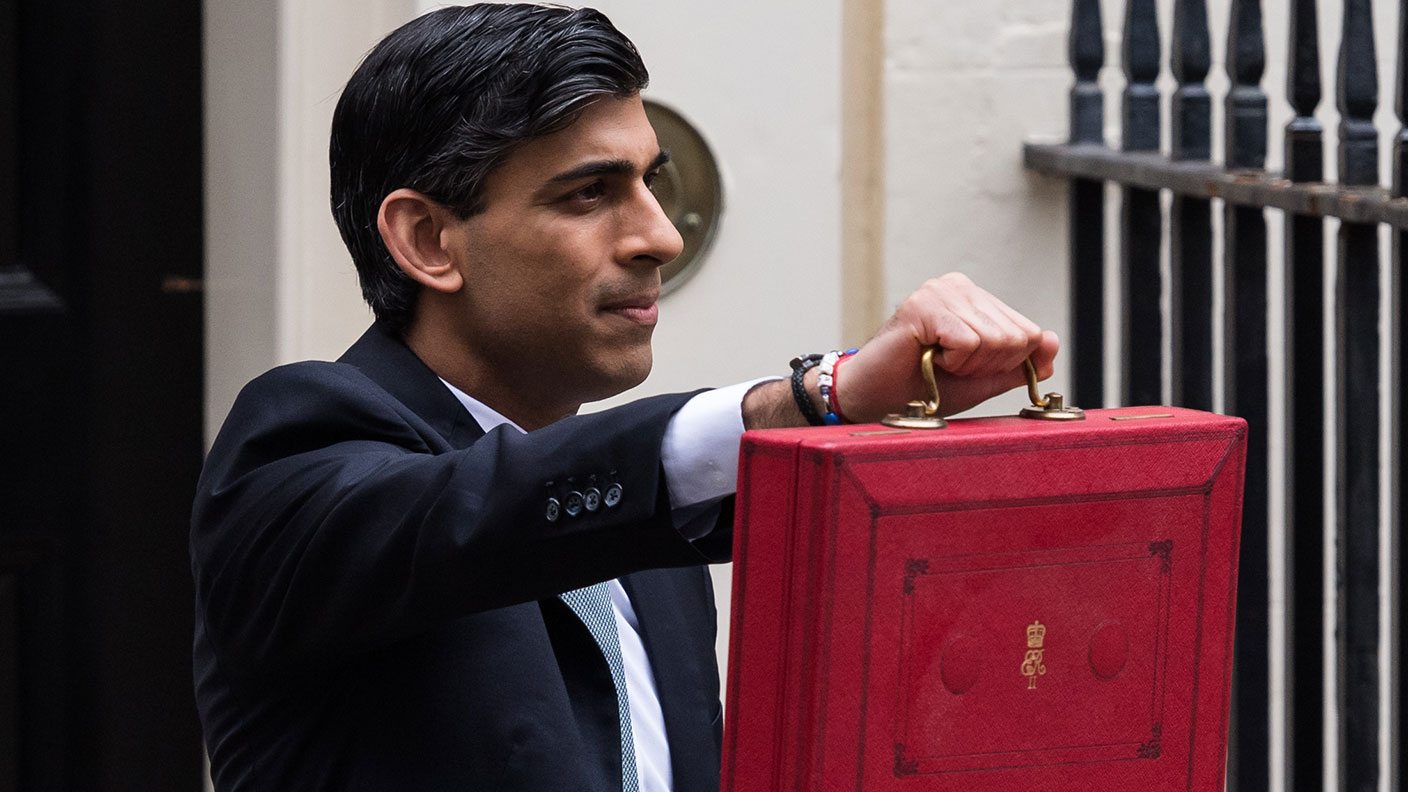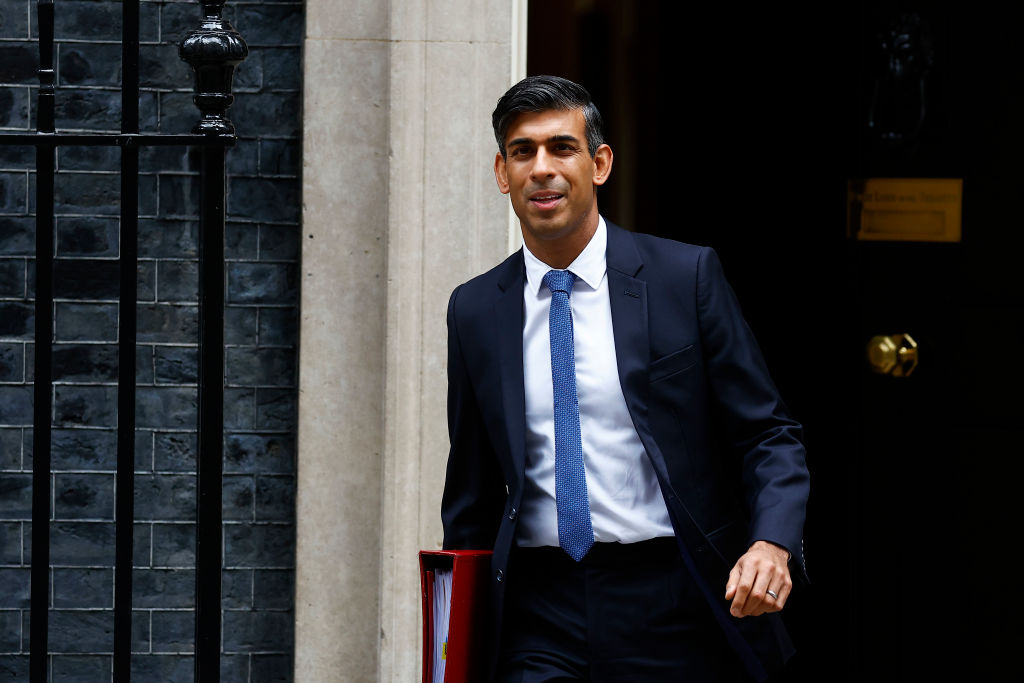What is the pensions lifetime allowance and should you be worried about hitting it?
In his recent Budget the chancellor froze the pensions lifetime allowance at £1,073,100. That may sound like a lot to have in your pot, but you could easily find yourself hitting it. Saloni Sardana explains what it is, and what the freeze means for you.


Get the latest financial news, insights and expert analysis from our award-winning MoneyWeek team, to help you understand what really matters when it comes to your finances.
You are now subscribed
Your newsletter sign-up was successful
Want to add more newsletters?

Twice daily
MoneyWeek
Get the latest financial news, insights and expert analysis from our award-winning MoneyWeek team, to help you understand what really matters when it comes to your finances.

Four times a week
Look After My Bills
Sign up to our free money-saving newsletter, filled with the latest news and expert advice to help you find the best tips and deals for managing your bills. Start saving today!
Chancellor Rishi Sunak’s second Budget trod a fine line between helping the UK recover from the coronavirus pandemic right now, but also laying out a plan to pay back the eye-watering £355bn the government is forecast to borrow in 2020-2021.
One of the biggest money spinners was the announcement of freezing all personal tax allowances until at least April 2026. This is a classic example of “fiscal drag” (explained here in our two minute video), where tax bands do not change but the tax take increases because rising incomes push taxpayers into higher brackets.
This will increase tax bills in real (after-inflation) terms for most of us over the next few years. But of particular concern to investors is the freezing of the pensions lifetime allowance (LTA). While there’s a limit to what you can do about being dragged into a higher income tax bracket, for example, your chances of breaching the LTA are important to consider in your long-term (or not-so-long-term, depending on how close to retirement you are) financial planning.
MoneyWeek
Subscribe to MoneyWeek today and get your first six magazine issues absolutely FREE

Sign up to Money Morning
Don't miss the latest investment and personal finances news, market analysis, plus money-saving tips with our free twice-daily newsletter
Don't miss the latest investment and personal finances news, market analysis, plus money-saving tips with our free twice-daily newsletter
What is the lifetime allowance?
The lifetime allowance (LTA) is the total amount an individual can save into a pension without facing a hefty tax bill. Once the LTA is hit, the excess pension amount is taxed at 25% if taken in the form of income, and 55% if taken as a lump sum.
Introduced in 2006, the LTA was initially set at £1.5m, then increased in 2012 to £1.8m. However, a series of cuts lowered it to £1m in 2016. Since then, it has increased yearly in line with inflation. However, now Sunak has frozen LTA at the existing level of £1,073,100 until 2026.
The short-term impact of the freeze will be minimal, say experts, as it was only due to rise by 0.5% this year (to £1,078,900) because inflation has been so low. But in the long term the changes could have a massive impact on peoples’ pensions.
What impact?
The policy change will see “more people potentially falling foul of a tax charge”, says Clare Moffat from insurer Royal London. Without the change, and assuming inflation-linked increases, the LTA would have risen to £1,162,300 by 2025-2026, according to a forecast from the Office for Budget Responsibility (OBR).
On other words, the LTA will be £89,200 lower than it should have been were it to increase in line with consumer price inflation (CPI). The long-term impact of the freeze, combined with the effect of the earlier reductions, will make it harder for savers to accrue enough pension to support a comfortable retirement, says Kay Ingram at LEBC Group.
While the government expects the LTA freeze to save almost £1bn by 2025-2016, Willis Tower Watson, another insurer, says the estimate doesn’t indicate how much of these savings will be derived from behavioural changes such as lower pension contributions (which means the government will have a smaller tax relief bill) or retiring early.
The LTA freeze penalises investment performance
A key criticism of the LTA in general is that it is a limit on overall pot size, not contributions. In other words, savers can end up breaching the limit and incur excess charges even if they stop contributing to their pensions, because it all depends on the investment performance of their pot.
For example, a saver who currently has £500,000 of savings in their pension pot would reach the current LTA limit in just a little over 11 years, assuming an average annual return of 7% on their investments, according to wealth manager James Hambros & Partners. With a 5% annual return it would still take less than 16 years to reach the limit, and just below 26 years with a 3% return.
For defined benefit schemes, also known as final salary schemes, as a rough guide, a saver would need to have accrued benefits worth £53,655 a year. This is because for LTA purposes, HMRC multiplies defined benefit schemes by 20 (check out our video on the difference between defined benefit and defined contribution schemes).
To be clear, this is a far more lenient approach than that applied to defined contribution schemes – right now, with interest rates where they are, in order to buy a £50,000-a-year index-linked annuity, a 65-year-old man in good health would need to pay something in the region of £2m, well ahead of the LTA.
Should you stop paying into your pension?
The natural instinct for people may be to stop paying into their pension to avoid hefty charges, but clearly that’s a mistake. Every individual’s circumstances are different, and the tax breaks associated with pensions are generally worth having. Also, in some cases, it might still make sense to save into a pension even if breaching the LTA is possible or even likely.
However, the point is that you should be aware of it and you also shouldn’t underestimate your chances of hitting the limit - particularly given that governments have clearly demonstrated over the last 20 years or more that they have no qualms about making overall pension limits less generous. It’s another reason to make sure that you are also making use of your Isa allowance. We’ll have more on the best ways to put that to use in MoneyWeek magazine later this month. If you’re not already a subscriber, get your first six issues free here.
Get the latest financial news, insights and expert analysis from our award-winning MoneyWeek team, to help you understand what really matters when it comes to your finances.
Saloni is a web writer for MoneyWeek focusing on personal finance and global financial markets. Her work has appeared in FTAdviser (part of the Financial Times), Business Insider and City A.M, among other publications. She holds a masters in international journalism from City, University of London.
Follow her on Twitter at @sardana_saloni
-
 Should you buy an active ETF?
Should you buy an active ETF?ETFs are often mischaracterised as passive products, but they can be a convenient way to add active management to your portfolio
-
 Power up your pension before 5 April – easy ways to save before the tax year end
Power up your pension before 5 April – easy ways to save before the tax year endWith the end of the tax year looming, pension savers currently have a window to review and maximise what’s going into their retirement funds – we look at how
-
 Rishi Sunak: MoneyWeek Talks
Rishi Sunak: MoneyWeek TalksPodcast On the MoneyWeek Talks podcast, Rishi Sunak tells Kalpana Fitzpatrick that we need better numeracy skills to improve financial literacy and boost the economy.
-
 Is Britain heading for a big debt crisis?
Is Britain heading for a big debt crisis?Opinion Things are not yet as bad as some reports have claimed. But they sure aren’t rosy either, says Julian Jessop
-
 Is an inheritance tax (IHT) cut on the way?
Is an inheritance tax (IHT) cut on the way?Tax Talk that the government might cut or scrap inheritance tax in its Autumn Statement is rife. We look at how it could be reformed, and what difference it would make.
-
 Act now to bag NatWest-owned Ulster Bank's 5.2% easy access savings account
Act now to bag NatWest-owned Ulster Bank's 5.2% easy access savings accountUlster Bank is offering savers the chance to earn 5.2% on their cash savings, but you need to act fast as easy access rates are falling. We have all the details
-
 Moneybox raises market-leading cash ISA to 5%
Moneybox raises market-leading cash ISA to 5%Savings and investing app MoneyBox has boosted the rate on its cash ISA again, hiking it from 4.75% to 5% making it one of top rates. We have all the details.
-
 October NS&I Premium Bonds winners - check now to see what you won
October NS&I Premium Bonds winners - check now to see what you wonNS&I Premium Bonds holders can check now to see if they have won a prize this month. We explain how to check your premium bonds
-
 Government considering cuts to inheritance tax, reports say
Government considering cuts to inheritance tax, reports sayThe Sunday Times reported government officials are considering cuts to inheritance tax ahead of the general election.
-
 The best packaged bank accounts
The best packaged bank accountsAdvice Packaged bank accounts can offer great value with useful additional perks – but get it wrong and you could be out of pocket
